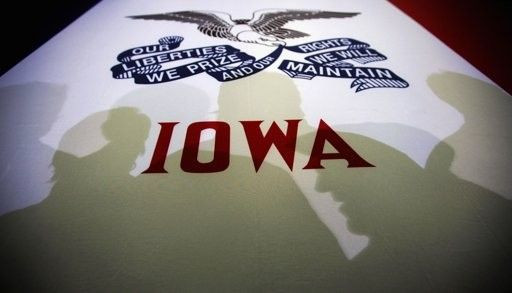Iowa's Federal Assistance Surpassed Income Tax Payments in 2010: Study

Anybody who has been following the 2012 presidential election knows that the Republican's vying for the party's nomination has been campaigning on the idea that they can improve the economy.
In addition to calling for lower tax rates, many of the candidates have also repeatedly insisted that scaling back the reach of the federal government is a crucial part of that process. However, what many of those candidates may not realize that the residents of many key battleground states receive thousands of dollars in federal government aid each year, in some cases receiving more aid than they even pay in federal taxes.
Using statistics from the U.S. Census Bureau, the National Priorities Project reports Iowa residents -- many of whom were courted by a variety of GOP candidates in the months preceding the Iowa Caucuses, the official kick-off to the presidential primary season -- on average received about $5,400 from all federal programs in fiscal year 2009, the latest year for which comprehensive data is available, while paying an average of $5,175 in federal taxes, excluding corporate income taxes. Thirty-three percent, or $5.4 billion, of Iowa's state revenue came from federal sources that year, consisting of everything from Medicare benefits, to Pell Grants and unemployment insurance.
Federal funds also accounted for every 30 cents of every dollar of New Hampshire state revenue in fiscal 2009 -- the sight of the next primary on Jan. 10. State residents received an average of $4,850 in direct assistance that year, which the National Priorities report indicates may contributed for New Hampshire's general stability throughout the recession since the state's unemployment rate has remained below 6 percent.
Iowa and New Hampshire are far from special cases. Residents of several other states have received comparable federal assistance, particularly after the passage of President Obama's $787 billion economic stimulus package in 2009.
Americans Still View Federal Programs as Inefficient
Americans believe the federal government has been wasteful with its spending, despite the assistance it has provided through social safety net programs, according to a September Gallup poll. Respondents estimated the federal government wastes 51 percent of every dollar it spends, the highest approximation the organization has received in its 32-year history of asking that question.
Americans are less likely to believe state and local government's waste funding, with respondents estimating state's waste 42 cents on the dollar while placing local governments at 38 cents on the dollar.
Since the poll did not ask respondents which federal programs they believed were wasteful, it is unclear whether Americans believe money is being thrown away on discretionary spending, or on defense, entitlement programs or interest on the national debt.
Previous studies have found that many Americans do not realize how many programs the federal government actually subsidizes. In 2008, Cornell asked University asked 1,400 Americans if they had every used a government social program, to which 57 percent said they did not. However, when the same respondents were asked if they benefited from any of 21 specific programs -- consisting of anything from federal loans to Social Security -- an overwhelming 94 percent said they had.
--
© Copyright IBTimes 2025. All rights reserved.





















